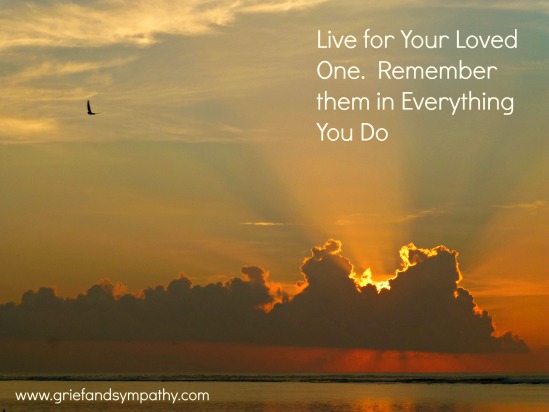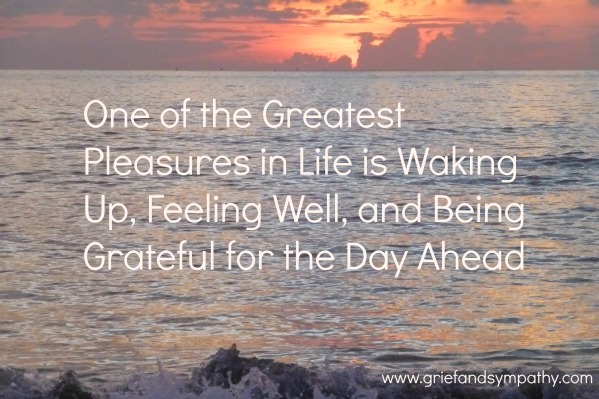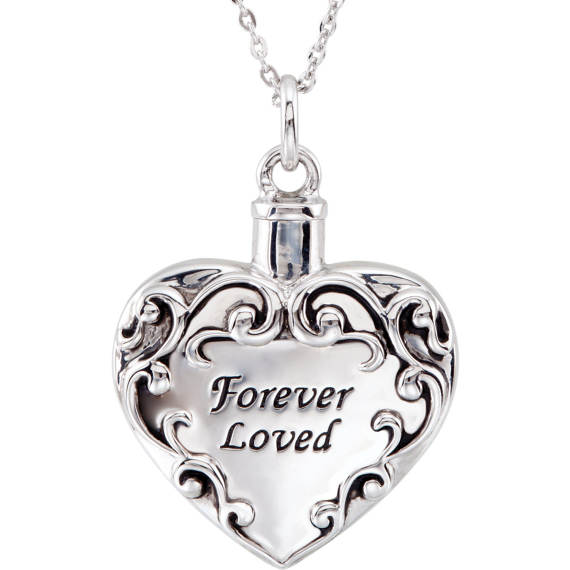How To Survive Grief, Come Out the Other Side and Enjoy Life Again
Six years after the death of her beloved husband of 54 years, Elizabeth Postle, author of this website, shares how she has survived her grief and made the most of each day.
How Our World Suddenly Shattered
It had been a normal sort of day. We’d been gardening, had a swim, played bridge in the evening. Then our world shattered.
My husband of 54 years got into bed first, and just as I went to put the light out, he had a seizure. He was unconscious in seconds, had blue lips, and I knew it was serious.
I put him in the recovery position. (Forty-five years nursing experience kicks in automatically at moments like these). I rang the ambulance and the children, and got dressed again and put on all the lights.
The ambulance arrived quickly and the paramedics did their jobs. My son arrived and we followed them to the hospital. I knew something serious had happened and expected the worst.
The wait seemed like days, but eventually the doctors said we could go in and my husband was able to ask sleepily “Where am I? What happened?”
I explained he had “just fainted” and not to worry. He was supposed to be meeting friends from overseas the next day and I knew that if he remembered he’d panic as he would be anxious about letting them down. “Don’t worry, we’ve left a message for Brian”.
We stayed for a while and it looked as if he was trying to stay awake for us. The doctors had organised tests for early the next morning, so we said we’d be back first thing and left at 3am.
My daughter was at home when we got there. She had driven two hours through the night to be with us. Worried, but a lot calmer as he seemed better, we all went to bed.
At 8am, about to set off for the hospital, the phone rang. My daughter answered. It was her Dad. “Bring my glasses when you come, I can’t see a thing”, he said. He had already had some tests and couldn’t wait to get home.
We got to the hospital, only to be greeted by a social worker and ushered into a little side room. We knew immediately that this wasn’t right and my worst fears were realised.
A young doctor came in after a while, he seemed really uncomfortable and I couldn’t make much sense of what he was saying. It was so hot in the room, I asked if we could go outside. What had happened was that my husband had asked if he could get up to use the bathroom. They had said he could. So he had gone and had another seizure there. As he’d not been discovered quickly enough, he had brain damage.
We sat outside the hospital in the sun for what seemed like hours. Eventually, we were allowed in to see him and he was in intensive care. No hope. They let us stay with him for a while, but were soon talking about turning off his life support the next day if they still had no response.
To say it was a shock was an understatement. He had had no health issues in the previous days or months. So it came out of the blue.
In the end, he saved us the awful pain of making the decision to turn off the life support. By the time we got to the hospital the following morning, he had slipped away. Considerate to the last.
While half of our brains kept saying; "Wow, what a way to go - he never suffered - he didn't know a thing about it", the other half were screaming; "No, it's not possible, he was a fit and healthy man and still had so much life to live". We were all completely numbed and unable to believe what had just happened to our wonderful, hard-working husband and father. A small comfort was that my son and I had been able to have a last few words when he had come round at the hospital on the first night, and my daughter on the phone.
Six Years On - How We Survived Our Grief
The six years since then have been a roller coaster and certainly not without pain and tears, but I want to share with you how my children and I have managed to survive our grief, get the most out of life, have new experiences and treasure every day.
We have lived for him, remembered him in everything that we have done, and so often said "Dad would have loved this", not without a tear in the eye and a hint of sadness, but also with joy at the memories of him which we have kept alive.
Surviving The Shock of Grief
The shock and suddenness of it all can’t truly be put into words. Everyone said I was amazing. That I was coping well. I wasn’t. I was numb and went into “matron” coping mode. It was as if it was all happening to someone else. Read more about Grief Shock here.
I also tried to be brave for the children’s sake, as I knew that it had affected them badly. We all worried that we had given him too much stress over the preceding years. My daughter over immigrating to Australia with her dogs; my son over a stressful divorce, and me because I had broken my back and two wrists the year before and he had spent weeks going to and fro from the hospital.
Looking back, none of these anxieties were necessary. He had been so happy in the last few days of his life. Something for which we can be thankful.
A Celebration of His Life
We celebrated his life with a service at the local funeral home. My children and grandchildren sang, played guitar and saxophone and read poems. We did him proud. They were all so good. My grandson won a prize at school for the moving poem he wrote about his granddad. You can read it here. I can never tell them all how proud I am.
Surviving The Early Days of Grief
From the day my dear husband died, my life stopped. For months I was on autopilot.
The early days were hard as I struggled to cope with all the tasks which he had done over the years. I had to take some driving lessons to get the confidence to drive again as my husband had done all the driving for the previous 10 years. I had to get my children to do all the banking as I was frightened of internet banking and couldn’t concentrate.
Thank goodness for all my friends and family. They would visit or ask me to play bridge. I was asked to join a local ladies’ debating group. They had weekends away, movie trips and meetings. It was the dates in the diary which gave me a purpose each day. I went to everything, taking my own advice to keep busy, but I felt like an onlooker. I was like a child being taken around by an adult. Inside I was scared of driving, scared of all the responsibilities I now had which I’d never done before. But I was trying to be brave for my children and grandchildren.
When I couldn’t sleep I’d spend hours in the middle of the night writing the pages which later became this website.
If people asked, I always said “I’m fine”. Even when I was not. I was brought up with my father saying “No-one wants to know you when you are miserable”.
I did keep one or two close friends who I turned to when feeling low or upset. We were there for each other to have a moan or a good cry. We’d usually end up laughing and just got on with our day.
Keeping your sense of humour helps you to survive grief at the most difficult times.
The Floodgates of Grief Opened
One day, five months after my dear husband died, I walked onto the balcony with my coffee. We’d always met for coffee about 10am. He’d be working in his garage or the garden and I’d be in the house and we’d meet for a break.
I looked at his empty chair on the balcony.
Suddenly the numbness, my safety blanket was gone and the huge loss hit me like a bulldozer and I couldn’t stop crying.
I rang my best friend who came immediately. We had been friends since my husband and I had arrived in Australia. Her husband now had Alzheimer’s and we had been supporting each other for years.
Support of Friends and Family
Without the support of friends and family I’m not sure how I would have survived my grief. As well as my dear husband, my son and daughter have always been the most important people in my life. They are so different in many ways, but each one contributes so much to my life. Their support over the years cannot be measured.
Moving On After Grief
I stayed in my home for four years. I was only able to stay as long as I did because of the help my children gave me. My son with his DIY skills and bringing the grandchildren to see me. My daughter visiting as often as she could and bringing her dogs which got us out walking in the fresh air on the beach.
I wanted to stay near my friends as long as I could. They had been so good to me, getting me out and about and keeping up with my hobbies. I joined a choir too. I wasn’t given the chance to be lonely.
However, I have always suffered from allergies and I also needed cataract surgery. I was ill for a protracted period and my eye surgery was imminent. I wished I lived nearer my daughter.
I love them both, but my son works long hours and travels a lot and has family commitments. My daughter works from home and has no children, so she has more time.
Once I had my cataracts removed it was a revelation! The sea and sky were such a vivid blue, but I could also now see clearly just how neglected my house had become and the layers of thick dust in the rooms I wasn’t using. It was time to move to somewhere more manageable.
My daughter had a granny flat at her place out in the country and I decided to move into that. Well, my eyes were better, my health had improved and suddenly I decided I was too young and fit for a granny flat. So I bought myself a more manageable property on a flat block with a lovely garden only 10 minutes from my daughter. It has a large shed so we were able to keep all my husband’s tools and workshop so my son can still enjoy them.
I joined my daughter’s yoga group, line dancing and a choir and soon made another lovely group of friends. I have settled in well and my old friends come out to visit me for a ‘break’ in the country. My daughter and I see each other several times a week and do lots of activities together including going on weekends away. My son loves his trips out to the country to see me and spend time in his “Dad’s workshop”.
Also read "Should we move house after a bereavement?"
Missing My Beloved Husband and Surviving One Day at a Time
Yes, I miss my beloved husband every day and I talk to his photo still. But I feel so blessed to have had his love and care for 54 years. He was a major part of my life.
I tend to look at life now as coping with each day at a time. Whether this is age related or just my coping strategy is hard to define. It works for me, so it doesn’t really matter which.
My granddaughter asked me recently: “What excites you these days?” I replied; “Waking up each morning and feeling well.” She laughed, but thinking about it, it’s vital for all ages to enjoy the feeling of a new day ahead. Being retired is great as you can choose what to do with no pressure. A lot of people find this ‘freedom’ difficult which is sad.
This is the last chapter of my life. I have the peace and quiet of this country life with the birds for company. I have been blessed with wonderful parents, a great career, a wonderful partner, children and grandchildren of whom I am so proud. What more could anyone want?
I consider myself lucky to have met and married such a caring, honest man. Our 54 years together were a gift that few couples achieve. We always said; “We’re a good team”. His love made me strong and able to cope with this latest chapter of my life.
Since my soul mate left, I have written this grief site and my books, all in remembrance of him and our love. It is the legacy I will leave on behalf of both of us.
Read more from Elizabeth Postle about how to cope with the loss of a husband.
- Grief and Sympathy Home
- Dealing with Grief
- How to Survive Grief
Having Difficulty Surviving Your Grief?
Don't be ashamed if you feel you are not coping. Not all of us are lucky enough to have friends or family in whom we feel comfortable sharing our innermost feelings. Getting help from a grief support group, or an online counsellor is a good idea and can be very effective. We recommend the following service from BetterHelp.
(To be totally upfront, note that we do receive a commission if you sign up with them, but that doesn't mean that we don't believe in their service and wouldn't recommend them anyway).
Where to get help:
Have You Considered One-on-One Online Grief Counseling?
Get Expert and Effective Help in the Comfort of Your Own Home
The following information about online counseling is sponsored by 'Betterhelp' but all the opinions are our own. To be upfront, we do receive a commission when you sign up with 'Betterhelp', but we have total faith in their expertise and would never recommend something we didn't completely approve.
Do you feel alone and sad with no support and no idea how to move forward? It can be tough when you are stuck in grief to find the motivation to get the most out of your precious life.
Online counseling can help by giving you that support so you don't feel so alone. You can have someone to talk to anytime you like, a kind and understanding person who will help you to find meaning in life again, to treasure the memories of your loved one without being overwhelmed and to enjoy your activities, family and friends again.
- Simply fill out the online questionnaire and you will be assigned the expert grief counselor most suitable for you. It only takes a few minutes and you don't even have to use your name.
- Pay an affordable FLAT FEE FOR UNLIMITED SESSIONS.
- Contact your counselor whenever you like by chat, messaging, video or phone.
- You can change counselor at any time if you wish.
- Click here to find out more and get started immediately.
- Or read more about how online counseling works here.
Sales from our pages result in a small commission to us which helps us to continue our work supporting the grieving.
Hypnosis for Grief - 10 Ways It Can Help You
Try a gentle hypnotherapy track to relax the mind. Learn how self-hypnosis can help you cope with grief at any time of the day or night.

For Remembrance:
Sales from our pages result in a small commission to us which helps us to continue our work supporting the grieving.
Memorial Jewelry to Honour a Loved One
Check out our lovely range of memorial jewelry for any lost loved one. Pendants, necklaces, rings or bracelets, we have them all in all kinds of styles. Choose for yourself or buy as a sympathy gift.
Create an Online Memorial Website
Honour your loved one with their own memorial website. Share photos, videos, memories and more with your family and friends in a permanent online website. Free for basic plan with no ads.










